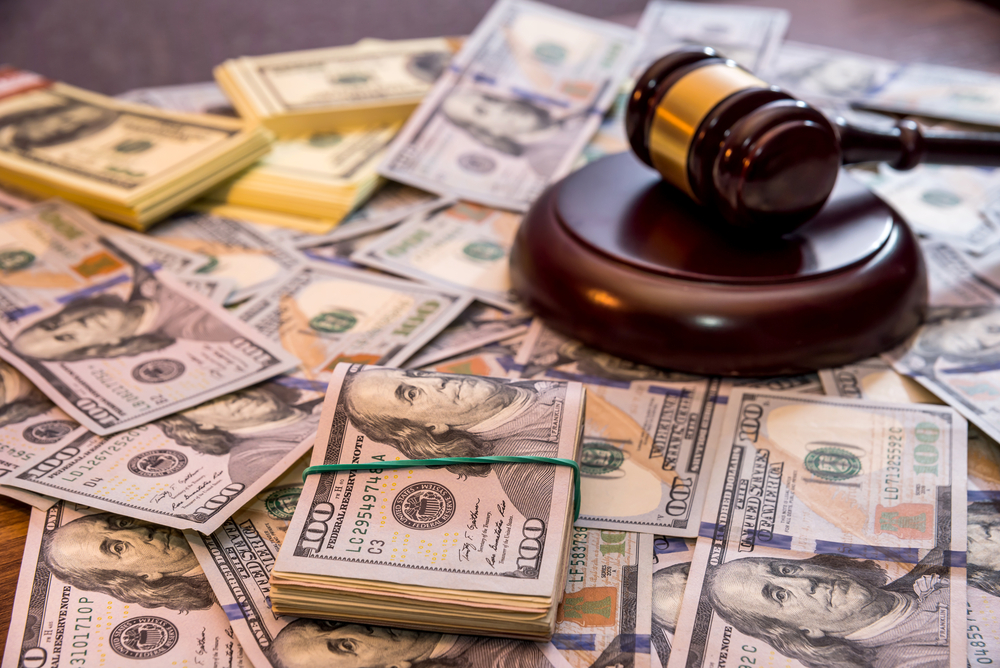
What do Madonna, Tom Brady, David Ortiz, Jimmy Fallon, Gwyneth Paltrow and Kim Kardashian have in common? Yes, they are all famous, but that’s not it. Rather, it is the fact that they have all been the subject of lawsuits against them for their endorsement of crypto currency.
It would appear that the plaintiffs lost money in their investments, and they blame these celebrities for misinforming them. If justice were to prevail, those wasting the courts’ time in this manner should be severely penalized for bringing frivolous lawsuits; at the very least, they ought to be compelled to pay the legal costs of these high profile defendants.

Endorsing something is merely giving an opinion, and doing so is part and parcel of free speech. Now that this right is under attack by wokist cancellers, it is more important than ever that we defend, to the utmost, what few free speech rights are left to us.
Penalizing endorsers is open to all sorts of reductios ad absurdum. Who else gives of their opinions, for a fee, and whose implicit advice might upon occasion, backfire.
Perhaps the most mistaken endorsers are the meteorologists. Sometimes, it seems as if they flip coins before giving their diagnoses of what is in store for us. But many people depend upon their prognostications, and lose money when (I was about to say “if” but I corrected myself) they are in error.
But these people are just the tip of the proverbial iceberg. Who else gives out advice for a fee and has deep enough pockets to be profitably sued? Accountants advice clients about how to ward off the IRS; sometimes they are in error. Lawyers give guidance. Whenever a lawsuit goes to court, both sides cannot win; the loser can bring suit. One does not necessarily think of doctors, dentists, psychologists as giving out instruction; but they all do, and are thus vulnerable to lawsuits, when in error. The less said about financial advisors the better. They will be on the front lines of this new intellectual war, if it gets off the ground.
I, too, in writing this essay, can be subjected to legal attack. I am among many others who are giving direction for public policy in the legal realm. Please don’t sue me. What about the owners of the periodical for which I am now writing? They are in the same boat with me (misery loves company).
If we stretch things not too unreasonably, it is possible to bring into this practically every participant in the economy. The grocer, for example, stands by his wares. He is in effect endorsing them. If they boomerang, he can be found guilty of the exact same “crime” as those celebrities named above. Pretty much anyone selling anything at all can be reached by this not unreasonable interpretation.
If we stretch matters a bit, just a little bit, what about those beautiful models who stand by, and sometimes caress, new automobiles at their releases? They too, it might well be argued, are with their beauty endorsing these cars. Certainly they rivet attention on these new vehicles.
No, this latest attack must be nipped in the bud, if we are to retain any modicum of our much under attack nowadays free speech rights. Yes, it is commercial free speech in this case, but there is no warrant to denigrate them vis a vis political or intellectual discourse.
Walter E. Block is Harold E. Wirth Eminent Scholar Endowed Chair and Professor of Economics at Loyola University New Orleans and is co-author of the 2015 book Water Capitalism: The Case for Privatizing Oceans, Rivers, Lakes, and Aquifers. New York City, N.Y.: Lexington Books, Rowman and Littlefield (with Peter Lothian Nelson ).

READER COMMENTS
Walter Donway
Mar 5 2023 at 11:41am
A fine article and urgently needed. I read a lot of financial advice and notice, of course, that there always is a disclaimer: This is not a recommendation or investment advice, we are only providing information. This is almost universal so I wonder (have not researched it) if there are laws applying particularly to public investment opinions.
BC
Mar 9 2023 at 5:41am
Yes, there are definitely regulations behind this. I don’t know about “laws” since much financial regulation is legislated by agencies (SEC, CTFC, etc.) or industry self regulators (FINRA, NFA, etc). One does not want to be seen as giving investment advice because then one would be regulated as an investment adviser. Even if one is not being paid for an article containing investment-related content, there are also lots of restrictions on “advertising” to solicit clients. I put advertising in air quotes because the definition of “advertising” in this context goes far beyond what we normally think of as ads. Anything read by more than one person, e.g., an email sent to a list, that mentions an investment adviser or fund by name might be construed as advertising. The financial industry has evolved such that almost anything published goes through some sort of compliance review.
Finally, when people lose money on an investment, some subset look to blame someone to sue to recoup their losses. If the crypto investors had made money, they wouldn’t have offered some of their gains to the celebrity endorsers, so they are basically looking for a put option after the fact. Because no one wants to give away free put options, investment advisers try to pre-empt those lawsuits through self-censorship and disclaimers. I think some of Walter’s reductios ad absurdum are actually backwards. Investment advisers’ speech is already heavily regulated and self-censored, and doctors’ risk of malpractice suits have already led to so-called defensive medicine. Lawyers are also at risk of malpractice suits. At one time, one might have used a hypothetical lawsuit against celebrity endorsers as a reductio ad absurdum of the liability faced by investment advisers and other professionals. As it turns out, the lawsuits are the latest stop on the slippery slope.
Mark Brady
Mar 5 2023 at 6:52pm
This post prompts me to ask a question. Does copyright law impose an acceptable restriction on free speech?
Jon Murphy
Mar 6 2023 at 10:16am
Is copyright a restriction on free speech?
Mark Brady
Mar 6 2023 at 11:19am
“Is copyright a restriction on free speech?”
It all depends how you define free speech. We could define the right to free speech to exclude all speech that infringed statutory copyright. But do we want to go there?
And in this regard, consider fair use doctrine, which provides limited protection for free speech that quotes copyrighted works.
Jon Murphy
Mar 6 2023 at 12:39pm
Fair enough.
I’m not sure copyright does constitute a free speech issue. My copyright of my works doesn’t stop you from talking about them. It just stops you from claiming the ideas are your own.
But given the way you framed the response, I can see where you’re coming from.
I need to think on this more.
Mark Brady
Mar 6 2023 at 5:47pm
Thank you, Jon.
One further point. You write, “My copyright of my works doesn’t stop you from talking about them. It just stops you from claiming the ideas are your own.”
But that’s something different again. Copyright prevents me from reprinting your copyrighted book (with your name on the title page) and selling it. If I were to reprint and sell your copyrighted book (with my name on the title page), I have not only breached your copyright but also defrauded the customers who bought the book thinking it was written by me when it was not.
Jon Murphy
Mar 6 2023 at 5:57pm
Touche
Vivian Darkbloom
Mar 6 2023 at 9:43am
Mr Block is apparently referring to, among others, Ryan Huegerich, Individually and on Behalf of All Others Similarly Situated, v. Steve Gentile, et al., in the United States District Court for the Central District of California. The latter suit is, as far as I know, the most advanced in terms of celebrity endorsement lawsuits.
The judge in that case essentially dismissed most of the claims plaintiffs had against Kim Kardashian and others. The case involved EthereumMax tokens. The judge has, however, allowed plaintiffs to amend their claims. Specifically, plaintiffs may try to prove that the celebrities in question participated in a “pump and dump” scheme–in essence a criminal conspiracy. That is, that they (the celebrities) had *actual knowledge* that the tokens were artificially overvalued and knowingly participated in a scheme to (further) inflate the value and profit from that by then dumping their own tokens (that is, that they had actual knowledge of the “pump and dump” scheme and actively participated in it. Plaintiffs must further show that they relied on defendant’s representations in buying the tokens. This is a very high burden to meet and it requires far more than a “celebrity expressing his or her own opinion”. The fact that some of the defendants in the action are celebrities should neither expose them to liabilty or shield them from it.
Comments are closed.